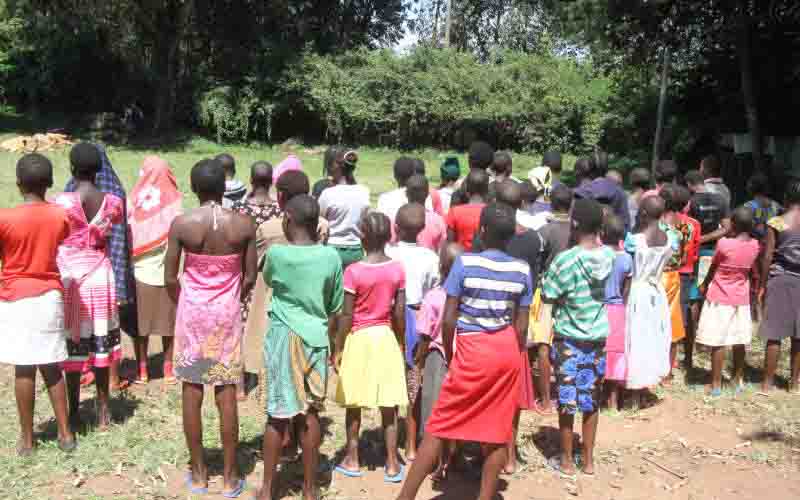×
The Standard e-Paper
Fearless, Trusted News

Over 50 under age girls at a rescue center in Kuria east on October 5, 2020. [Caleb Kingwara, Standard]
The Covid-19 pandemic slowed down the fight against Female Genital Mutilation (FGM), leading to school dropouts and early marriages.